Gondwana Collection Namibia has recently added Etosha King Nehale to their repertoire of lodges. This destination combines two much sought-after tourism experiences in an unprecedented meeting of worlds: culture and wildlife. It is the place where Etosha meets Owambo.
As one of the largest protected parks in Africa for free-roaming animals, Etosha is Namibia’s flagship national park. Owambo, on the other hand, previously the soil of many historic battles, has remained relatively unknown and mostly ignored in tourism circles. However, true to the Gondwana philosophy, they aim to uplift the Namibian community, which led to the construction of Etosha King Nehale. This pioneering lodge will serve as a gateway from beloved Etosha to the culture-rich Owambo Region. It caters to the modern traveller who has a desire to experience and interact with local cultures while on safari.
Discover the last unexplored frontier of Namibian tourism, while enjoying unparalleled wildlife encounters and the colourful Owambo culture.
King Nehale Conservancy
The conservancy concept was developed for the conservation of species and their surrounding habitats. Gondwana has joined forces with the King Nehale Conservancy, situated along the northern border of Etosha National Park. The Conservancy was registered in September 2005 and was named after the late Nehale lya Mpingana, Chief of the Ondonga Traditional Authority. According to the agreement, Gondwana could construct a lodge within the Conservancy, about one kilometre north of the King Nehale Gate to the Etosha National Park.
Aside from paving the way to the northern regions, the lodge enables the conservancy to generate an additional income, allowing yet another Namibian community to benefit from the country’s biggest sector - tourism. The conservancy is surrounded by the pulsating life of the communal areas of the Oshikoto, Oshana, Ohangwena and Omusati Regions that all make up the Owambo Region.
Etosha King Nehale is the gateway to the kingdoms of “the north”, as Owambo is known in Namibian circles. Traditional authorities – kings and queens – still play a vital role in the Owambo community. They work hand in hand with the government to develop the region.
Etosha King Nehale
The lodge, which will be opening on 10 June 2020, comprises 40 rooms with décor that pays homage to the rich cultural heritage of the area. Furthermore, the design and construction of Etosha King Nehale is based on the same principles used in the building of The Desert Grace in the Namib Desert. The environmentally friendly concept incorporates local resources as far as possible. Sandbags that were filled on site were used instead of bricks in the construction. This method cut out major manufacturing costs and any possible pollution caused thereby. This also drastically reduced the costs of material transportation, saving on fuel consumption.
The area is characterised by vast and spectacular landscapes including the Andoni Plains, artesian springs and woodlands. Guests will experience antelope grazing amongst cattle and abundant birdlife attracted by the diverse habitats. The lodge is surrounded by the vast white plains that the Cuvelai Basin, a trans-boundary wetland between Angola and Namibia, is known for.
Whether you are a geological enthusiast or not, this piece of information might help you understand and appreciate the vast nothingness surrounding Etosha King Nehale.
Many millions of years ago, the Kunene River flowed through Etosha, once a mighty freshwater lake. When the flow of the river changed, the water was cut off, causing the formation of pans that baked in the sun and caked in salt, the biggest of which is Etosha Pan at a staggering 5000 square kilometres. These clay soils, however, are the lowland drainage point of the Cuvelai Basin, which means that when great rains soothe the parched earth, some of the water might push all the way into the Etosha Pan. However, since the land surface here is extremely flat, the water moves very slowly. Fresh water soon turns salty with progressive evaporation.
None of the drainage channels ever reach the sea, but rather end in lakes and the above-mentioned pans. The myriad of these drainage channels, often separating and merging in places, are the “rivers” of the Cuvelai, called iishana. They are the life-giving veins that enable locals to practise agriculture, the main source of livelihood until now. This is also the reason that the Nguni cattle played such an integral role in the design and interior of the lodge. When seen from the air, the lodge layout resembles the head and horns of a Nguni cow.
Etosha King Nehale extends an alluring hand to those who enjoy exclusivity. Each room has its own private splash pool where guests can enjoy blissful solitude. As the lodge is near the park entrance, guests can easily access the bustling tourism destination that is Etosha. Furthermore, they are treated to animal sightings at a waterhole inside the park reserved exclusively for Etosha King Nehale guests. The culinary sensations also promise to be an indulgence of note.
We find ourselves in a world where the “slow life” has become a luxury, yet this is exactly what Owambo stands for. Get safari chic at Etosha King Nehale – a treat for discerning travellers who appreciate and find beauty in both wildlife and culture.
Author – Annelien Murray is an avid wordsmith who turns her pen to all things travel, culture and lifestyle. She was born in a small town called Otjiwarongo and grew up on a farm nearby. Creativity, nature, animals and travelling make her happy.


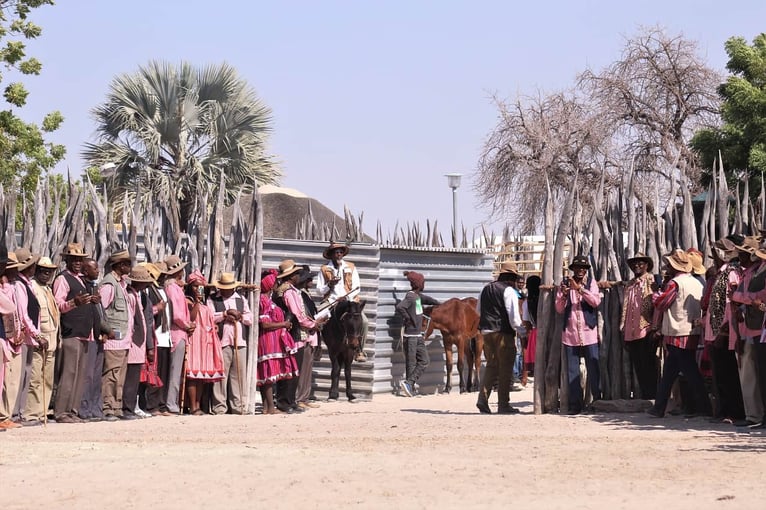
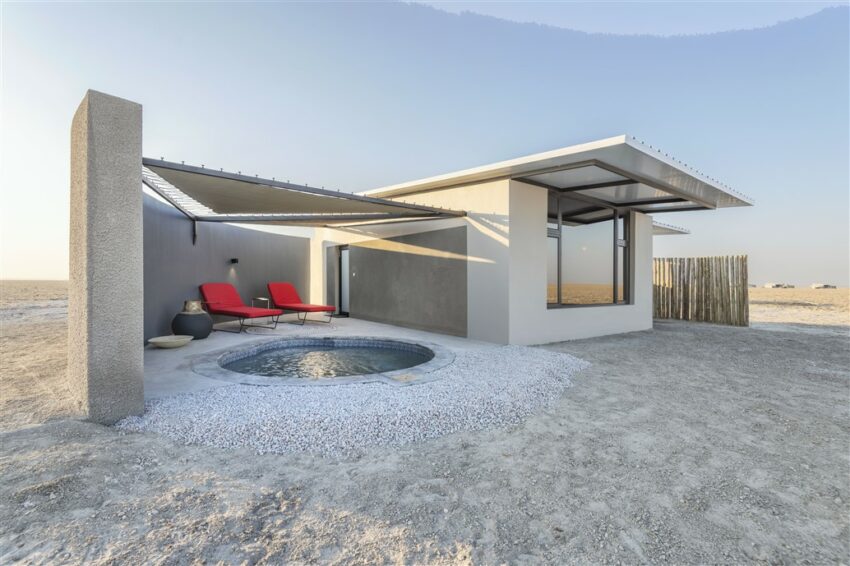
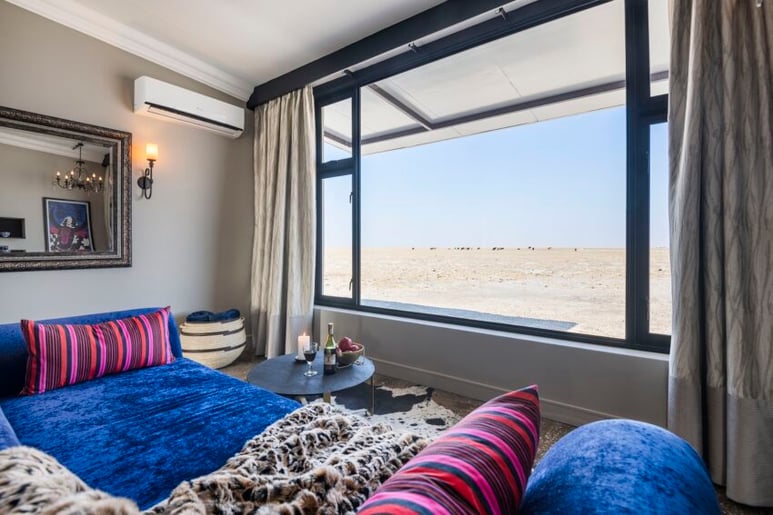

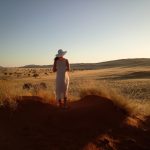
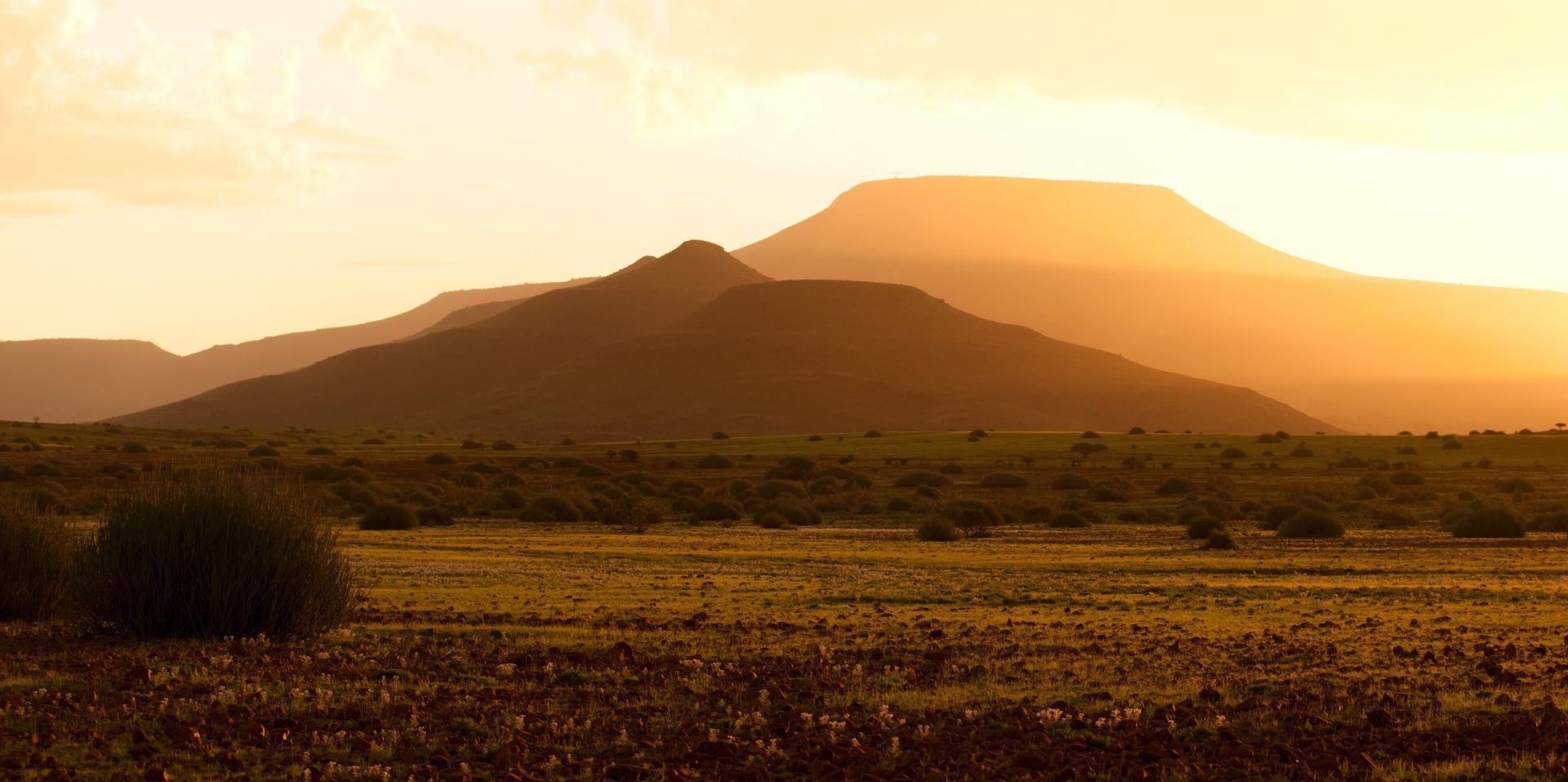
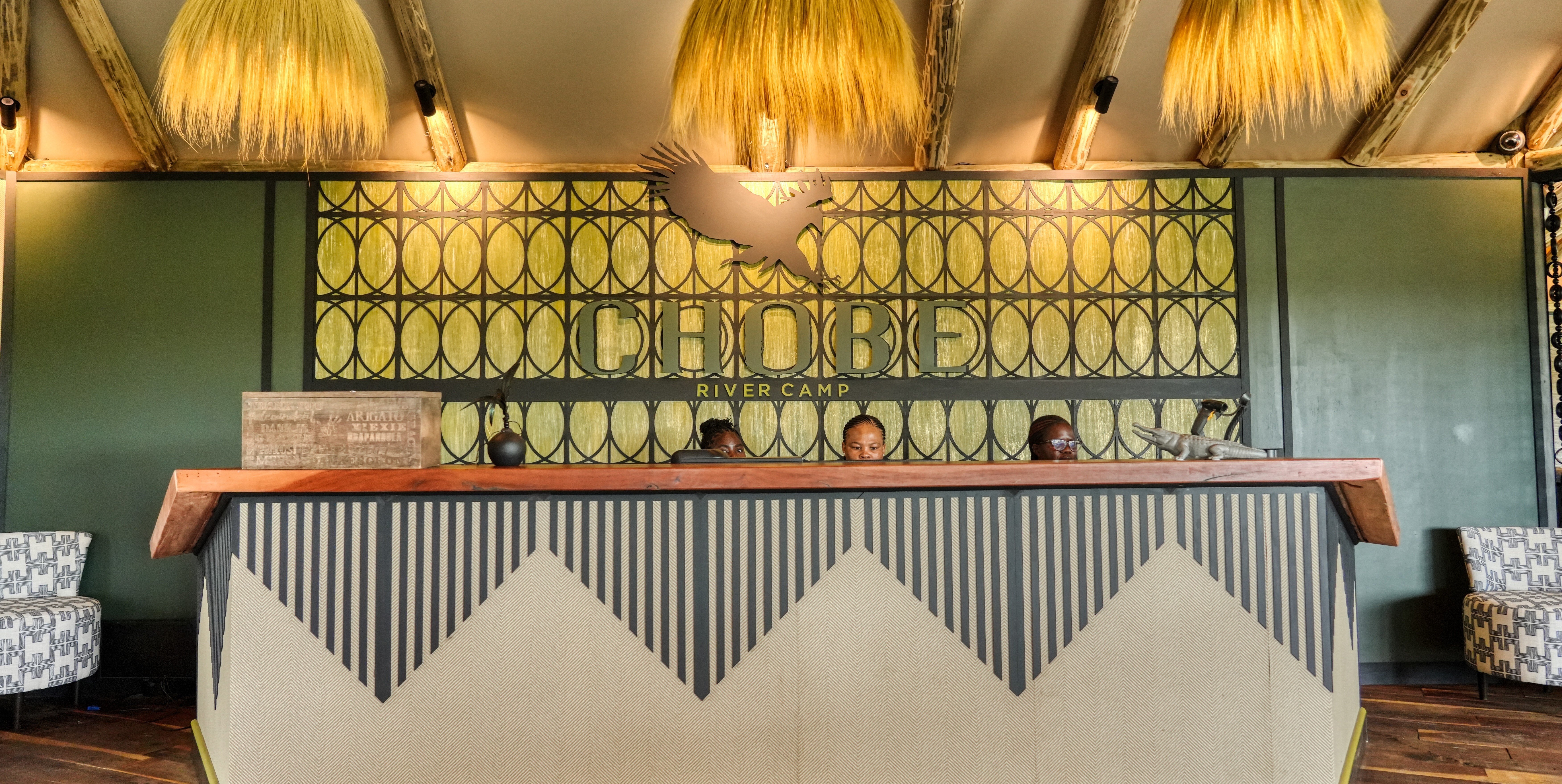
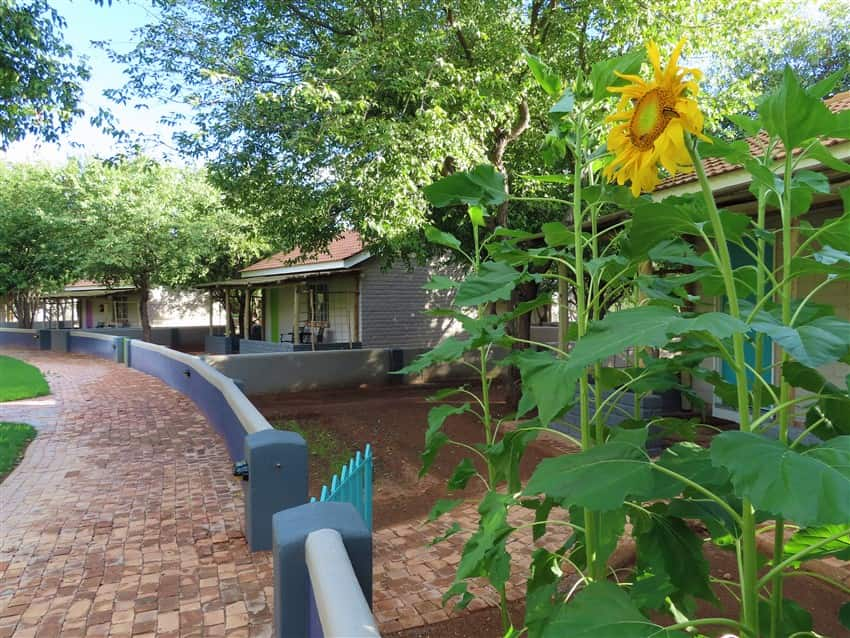

SUBMIT YOUR COMMENT